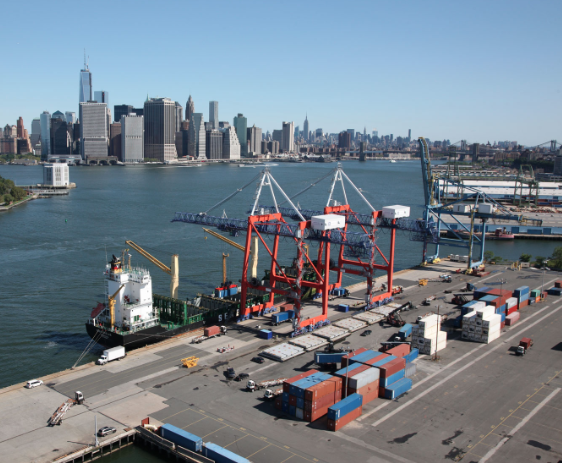By Peter de Langen
Should port development differ between metropolitan and non-metropolitan areas?
Some of the largest ports in the world are located in metropolitan areas, and quite often in central locations – think Barcelona, New York and Amsterdam – while others are located outside cities, such as Le Havre, Charleston, Richard’s Bay and Algeciras.
The pressure on land use is often high in metropolitan ports, with retail, housing or leisure, among others, clambering for use of the land.
From a public interest and policy point of view, land use should maximise ‘value for society’, without being influenced by external factors. So, tenants should be free to make a choice between using land for port activities or real estate development.
However, in most cases there are external factors that muddy the waters: open waterfront areas create huge value for residents, but when the waterfront is a public space, this value is not captured directly through payments of users. Likewise, transforming port land into urban real estate may cause a shift of transport from water to road, which has costs for society through more congestion and pollution.
There is a clear case for maintaining port facilities in metropolitan areas, even when the land value for urban real estate may be higher. However, all too often this argument is used for continued port operations without a clear value for society. Here, the efforts of the Port Authority of New York and New Jersey to maintain port activities in Brooklyn at the Red Hook terminal may be a case in point.
The location of a port in a metropolitan region also provides development options and competitive advantages over ports outside such areas. Important examples are cruise and marina activities, both high growth segments in port development. Other examples include recycling activities, car handling, warehousing and distribution activities, and new forms of manufacturing that are relatively small scale and without pollution. Metropolitan ports are often attractive locations for such activities.
These specific challenges for metropolitan ports have implications for port governance: full privatisation is generally not efficient given the importance of external factors, while there is a serious risk that the status quo will be maintained without question under a public sector port authority, instead of transitioning the port to focus on value for society. Such a transition may require shifting the revenue model away from port dues and towards new revenue streams, which can be a complicated move for a public sector port authority.
First published @PortStrategy













